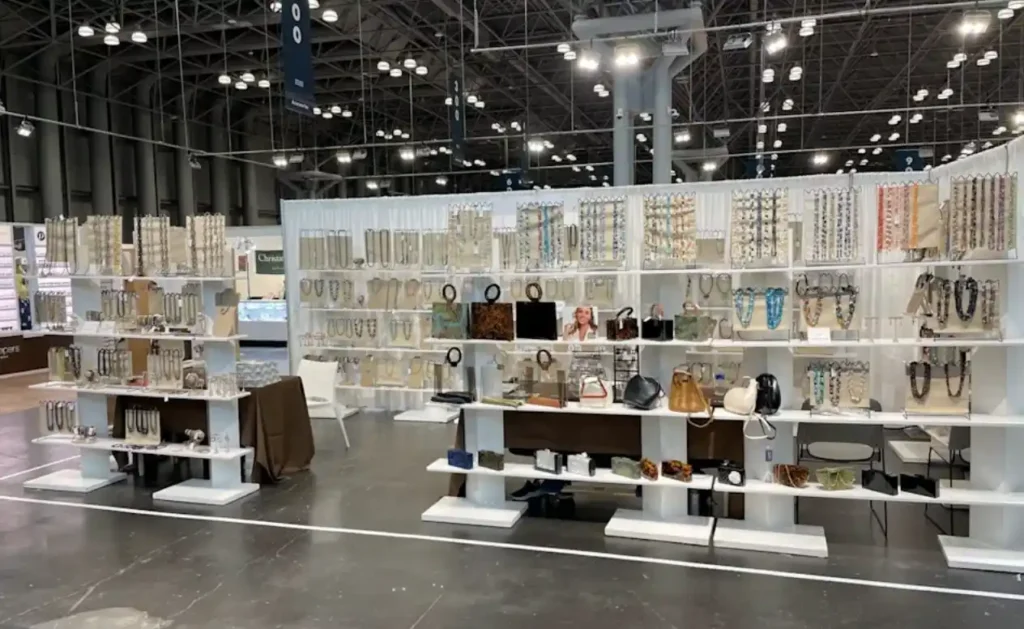The biggest shopping day of the year is just days away, but this year will be different for my business and thousands of other small businesses. For 23 years, I have run a small business built on transparency, craftsmanship and trust. My company, The Pearl Connection – known to museum stores and boutiques nationwide as SEA LILY – supplies jewelry to the Smithsonian catalog, the Reagan Library, the National Gallery of Art, the Metropolitan Opera and hundreds of other cultural institutions across the United States.
Here in Florida, you may have seen my jewelry at the Baker Museum in Naples, the Vero Beach Museum or the Norton Museum of Art in West Palm Beach.
It has taken decades to build this reputation – relationship by relationship, shipment by shipment.
Today, under current tariff policies, my business is in jeopardy. I recently submitted an affidavit to the Supreme Court – as it considers the legality of the president’s tariffs – to explain what these tariffs are doing to businesses like mine, and why I may not survive them.

In the past two months, my company has been inundated with customs notices demanding tariff payments. This chaos began with a routine shipment valued at almost $8,000 that U.S. Customs held for six weeks while questioning whether my pricing was accurate. Without notifying me, the shipment was returned in full to my supplier.
To avoid a complete shutdown, my supplier split the order into hundreds of smaller packages, each under $700. But that created a new problem: paying a 50% tariff on each smaller order. I have now paid more in tariffs than the original cost of my shipment, and I still do not have all of my goods.
Every time U.S. Customs holds a shipment, I am told to resubmit the same paperwork – tax ID, proof of incorporation, IRS forms, invoices – that I have already provided repeatedly.
Since regaining the presidency in January 2025, President Donald Trump has imposed wide-ranging tariffs on countries all over the globe.
The prices on my products are accurate. Yet my integrity is questioned again and again by people who know nothing about my business, my supply chain, or my longstanding record of compliance. I am treated as if I am attempting to deceive the government when I am simply trying to run a legitimate business.
This has left my business in disarray. Shops depend on reliability: their schedules are tight, their ordering cycles are precise, and their margins are thin. Now I cannot give customers a basic estimate of what will arrive or when. I have reordered merchandise multiple times in hopes that at least one shipment might get through.
I have been forced to raise prices, but I have worked to avoid larger increases to protect my relationships. However, the tariff costs far exceed what I can recoup. Every morning, I wake up wondering which shipment customs will confiscate next and how much more documentation it will demand. The stress has affected my mental health, and for the first time, I feel I no longer have control over the company I created.
Supporters of tariffs argue that they protect American workers and industries. That may be true in certain sectors like steel, autos and consumer electronics. But costume jewelry is not one of those industries. It is dominated not by multinational corporations but by small creative businesses, many run by women, operating on narrow margins and dependent on predictable imports.
We design our products in America and sell them to American institutions that rely on us for their own revenue. We are part of the cultural economy – not adversaries of it.
The current tariff structure does not protect my business; it punishes it. It does not strengthen the American economy; it undermines it. By casting suspicion on small importers, demanding duplicative documentation, and applying blanket tariffs without regard to scale, U.S. Customs has created a system that feels less like economic policy and more like arbitrary enforcement.
What is happening to my business is not a policy debate on cable news. It is a small American company suffocating under fees it cannot absorb, delays it cannot prevent, and bureaucratic hurdles it cannot navigate.
Without relief, SEA LILY may not survive. Small businesses are the backbone of American commerce. We are innovators, risk takers, and job creators. But no business, no matter how well-run or well-respected, can survive under a system that drains its resources while denying it the ability to deliver its products. If these tariffs continue as they are, many small businesses will not make it. And America will be poorer for it.




Good. You get what you deserve, you voted for Trump.
You voted for this
She got what she voted for.
LOL – voted for this right? Right?
Lol. LMAO even.
Trump ordered the tariffs.
Tariffs are hurting your business.
It’s black and white folks. Those of us in reality are wondering what it will take for you to finally wake up that Trump is terrible for the economy. He literally bankrupted his businesses SIX TIMES.
Until they’re affected, MAGAts don’t care. Now that SHE has been affected she all of a sudden cares.🤣
lol
You voted for brainlessness, now you get what you deserve. I hope beating w0keness was worth your livelihood
I love this for you! Hope your vote was worth it
But On the bright side he’s still “your” POTUS!
What did you think tariffs meant, when your guy ran on them?
Leopards ate your face.
Have the day you voted for. You thought it meant “them”, didn’t you? Other humans don’t matter, as long as it doesn’t directly affect you…until it does. THEN, it matters. Bigly. Sorry about your business but my god lady what were you thinking???? He literally TOLD you he was going to do this!!
This article is from a couple of months ago. Is she out of business yet? And how’s her healthcare?
I’m happy for them, and excited to see how they will fair under the current health system when they get butt cancer.
Hey! Your business is local to me. Very gratifying to see the local idiots get their just desserts. Enjoy bankruptcy! Maybe go back to school. Don’t let the door hit you on the way out. Wouldn’t want anymore brain damage. You’re a traitor piece of shit.
It’s impossible to feel sorry for someone who shot themselves in the foot.
She should die then. She is clearly bad at the only thing that matter – making money- so she does not deserve to live